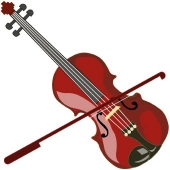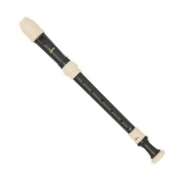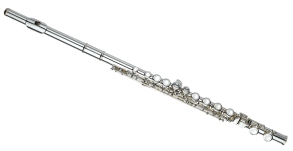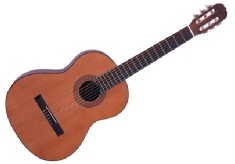
 |
Music Instrument Options |
What is a Recorder?  |
Which Keyboard?  |
Which Guitar?  |
Which woodwind?  |
Orchestra instrument?  < < |
One-View  < < |
MI Method  < < |
|---|
| SN | Instrument | Image | Suggested Model | Approx. Price in Rupees | Accessories |
|---|---|---|---|---|---|
| 1. | Violin |  | Standard Western Classical | 6,000/- | Music Stand, Rosin, Extra set of string. |
| 2. | Recorder |  | Yamaha YRA 302 | 1,500/- | Music Stand. Get the YRS 302 Recorder. Tenor & Bass Recorders Later. |
| 3. | Concert Flute |  | Yamaha Student Model | 18,000/- | Music Stand |
| 4. | Classical Guitar |  | Yamaha C70 or C80 | 11,000/- | Music Stand & Foot stool, Extra set of strings. Consider a good Acoustic Guitar as well. |
 |
 |
 |
 |
 |
|
|---|---|---|---|---|---|
| Keyboard | Piano | Electric Guitars | Classical Guitar | Acoustic Guitar | Ukulele |
| A keyboard in every home. Many of these are toys and not a serious musical instrument. | If you are serious go for an acoutic piano. Or a digital paino with piano-like weighted 88 keys feel. We can also faciliate organ, sacred and hymns Learning & Playing. | Learnable in a few days to months No formal methods. It's popular and most guitarist of this kind are self-taught. You don't really need a Teacher nor a School. | More expensive. Nylon strings. Standard size. Ergonomic posture of sitting. Finger-style. Read music notation. Concert instrument. Huge volume of available sheetmusic. Learn new songs from music. Takes years to learn. Examninations & Certification. Can easily adapt to any other style of guitar playing. | Cheaper. Steel strings. Sizes vary. Use a plectrum. Accompany with chords. Sing & Play. Fun with no real formal training. Can adapt and learn to play the electric - whether bass, lead or rhtyhme. Faciliate our Voice & Language Learning Programmes. |
 |
 |
|---|---|
| Quick-Keyboard | Quick-Guitar |
| Get your fundamentals right. The piano-like keyboard. Why 76 keys or more? Why weighted keys? Right hand. Left hand. Air & Accompaniment. The electronics side of music. 1-year Certificate Course from Music International. Start thinking piano, exams and more systemtic formal methods of learning. | Learn correctly. Rhythm. Lead. Bass. Rhythm and Percussion. Voice. How does it all fit together as a band. Notes. Intervals. Chords. Genres & Styles. Start thinking classical guitar, finger-style, solo performance, exams and becoming a more rounder guitarist. |

| Strings | Recorders | Woodwinds | Brass | Voice | Tuned Percussion | NON-Classical Mentoring |
| Violin, Viola, Cello, Double Bass | Alto Recorder, Soprano, Tenor or Bass Recorders. | Concert Flute, Obeo, Clarinet, Bassoon. Cor-Anglais. Picolo. Saxophone - Alto, Tenor or other. | Bugle, Trumpet, Cornet. Trombone, Tuba. French Horn. | Voice Placement. Music basics. Sight Reading & Sight Singing. Folk Music. Western Classical Music. Church Music. Secular Music. | Glockienspiel, Harp, Xylophone, Timpani, Tubular Bells | Acoustic Guitar, 4-octave Electronic Keyboard, Fretted Instruments Banjo, Ukulele, Mandolin, Balalaika. PIano or Button Accordion. Electric Bass, Rhythm or Lead Guitar. |
1. Early musical training helps develop brain areas involved in language and reasoning. It is thought that brain development continues for many years after birth. Recent studies have clearly indicated that musical training physically develops the part of the left side of the brain known to be involved with processing language, and can actually wire the brain's circuits in specific ways. Linking familiar songs to new information can also help imprint information on young minds.
2. There is also a causal link between music and spatial intelligence (the ability to perceive the world accurately and to form mental pictures of things). This kind of intelligence, by which one can visualize various elements that should go together, is critical to the sort of thinking necessary for everything from solving advanced mathematics problems to being able to pack a book-bag with everything that will be needed for the day.
3. Students of the arts learn to think creatively and to solve problems by imagining various solutions, rejecting outdated rules and assumptions. Questions about the arts do not have only one right answer.
4. Recent studies show that students who study the arts are more successful on standardized tests such as the SAT. They also achieve higher grades in high school.
5. A study of the arts provides children with an internal glimpse of other cultures and teaches them to be empathetic towards the people of these cultures. This development of compassion and empathy, as opposed to development of greed and a 'me first' attitude, provides a bridge across cultural chasms that leads to respect of other races at an early age.
6. Students of music learn craftsmanship as they study how details are put together painstakingly and what constitutes good, as opposed to mediocre, work. These standards, when applied to a student's own work, demand a new level of excellence and require students to stretch their inner resources.
7. In music, a mistake is a mistake; the instrument is in tune or not, the notes are well played or not, the entrance is made or not. It is only by much hard work that a successful performance is possible. Through music study, students learn the value of sustained effort to achieve excellence and the concrete rewards of hard work.
8. Music study enhances teamwork skills and discipline. In order for an orchestra to sound good, all players must work together harmoniously towards a single goal, the performance, and must commit to learning music, attending rehearsals, and practicing.
9. Music provides children with a means of self-expression. Now that there is relative security in the basics of existence, the challenge is to make life meaningful and to reach for a higher stage of development. Everyone needs to be in touch at some time in his life with his core, with what he is and what he feels. Self-esteem is a by-product of this self-expression.
10. Music study develops skills that are necessary in the workplace. It focuses on 'doing' as opposed to observing, and teaches students how to perform, literally, anywhere in the world. Employers are looking for multi-dimensional workers with the sort of flexible and supple intellects that music education helps to create as described above. In the music classroom, students can also learn to better communicate and cooperate with one another.
11. Music performance teaches young people to conquer fear and to take risks. A little anxiety is a good thing, and something that will occur often in life. Dealing with it early and often makes it less of a problem later. Risk-taking is essential if a child is to fully develop his or her potential.
12. An arts education exposes children to the incomparable.
